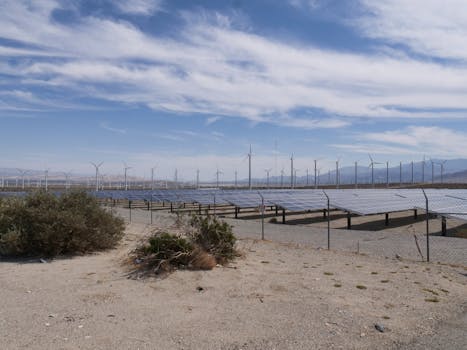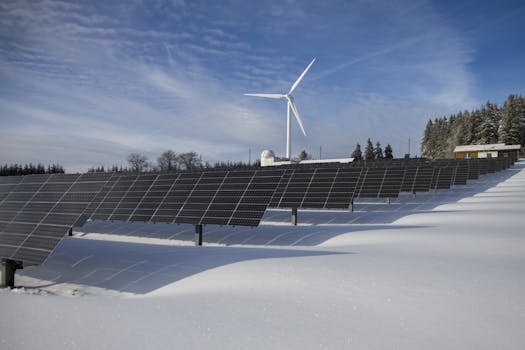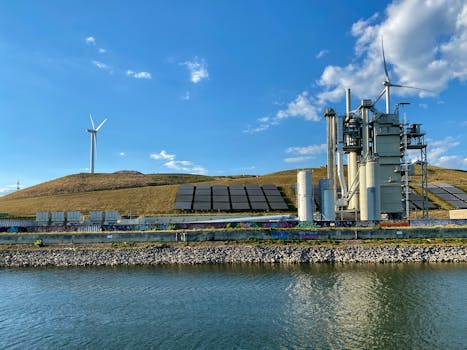
Introduction

Breakthroughs in renewable energy technology are revolutionizing the way we think about sustainability. As the world faces the challenges posed by climate change, innovative solutions in energy generation and consumption are more critical than ever. This article delves into the latest advancements in renewable energy technology and their implications for a sustainable future.
Advancements in Solar Energy

Solar energy remains one of the most promising forms of renewable energy. Recent breakthroughs in photovoltaic (PV) technology have increased the efficiency of solar panels significantly. New materials, such as perovskite solar cells, offer a potential efficiency of over 30%, compared to traditional silicon-based panels. Moreover, advancements in bifacial solar panels allow for energy capture from both sides, further enhancing energy output.
Wind Energy Innovations

Wind energy technology has also seen significant advancements. The development of larger and more efficient wind turbines has made it possible to harness wind energy in previously unsuitable locations. Floating wind farms, which can be deployed in deeper waters, are opening up new avenues for energy generation. These innovations not only increase energy capture but also reduce the environmental impact of wind energy projects.
Energy Storage Solutions

As renewable energy sources like solar and wind are intermittent, energy storage solutions are crucial for sustainability. Breakthroughs in battery technology, particularly lithium-sulfur and solid-state batteries, promise to provide higher energy densities and longer lifespans. These advancements could revolutionize how we store and use renewable energy, making it more reliable and accessible.
Hydrogen as a Clean Fuel

Hydrogen energy is gaining traction as a clean fuel alternative. Advances in electrolysis technology are making it more efficient to produce hydrogen from renewable sources. Green hydrogen, generated using renewable energy, can be used in various applications, from fuel cells in vehicles to energy storage solutions. This could play a significant role in decarbonizing industries that are hard to electrify.
Conclusion

The breakthroughs in renewable energy technology hold great promise for the future of sustainability. By harnessing innovations in solar, wind, energy storage, and hydrogen, we can pave the way for a more sustainable and resilient energy system. As these technologies continue to evolve, they will play a critical role in combating climate change and ensuring a cleaner planet for future generations.






